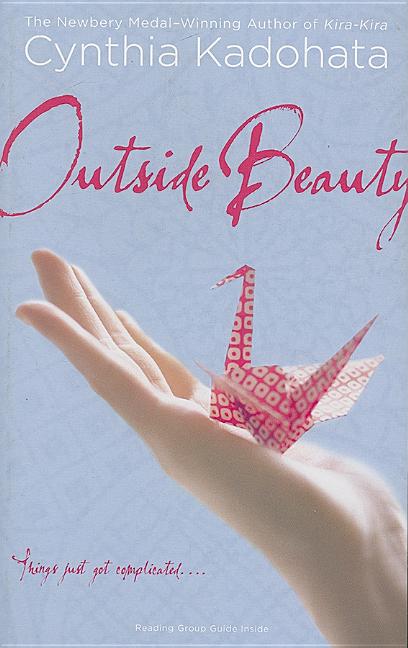A teen boy thinks his vaping habit is harmless until it becomes a crippling addiction of nightmarish dimensions in this searing young adult novel from Newbery and National Book Award winner Cynthia Kadohata.

A teen boy thinks his vaping habit is harmless until it becomes a crippling addiction of nightmarish dimensions in this searing young adult novel from Newbery and National Book Award winner Cynthia Kadohata.

Being a quadruplet can make it hard to stand out from the crowd. Becca’s three brothers all have something that makes them...them. Becca is the only one with nothing to make her special. But when she finds a tiny, sick piglet on the side of the road, Becca knows this is it – this is her thing. She names the piglet Saucy and soon, Saucy is as big a part of the family as anyone else.
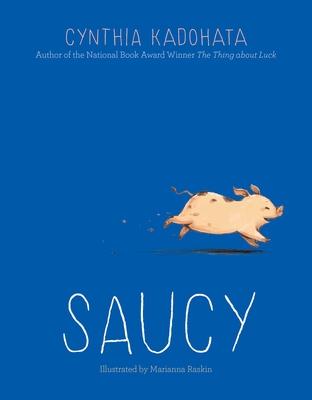
World War II has ended, but while America has won the war, twelve-year-old Hanako feels lost. To her, the world, and her world, seems irrevocably broken. America, the only home she's ever known, imprisoned then rejected her and her family--and thousands of other innocent Americans--because of their Japanese heritage, because Japan had bombed Pearl Harbor, Hawaii.
Japan, the country they've been forced to move to, the country they hope will be the family's saving grace, where they were supposed to start new and better lives, is in shambles because America dropped bombs of their own--one on Hiroshima unlike any other in history. And Hanako's grandparents live in a small village just outside the ravaged city. The country is starving, the black markets run rampant, and countless orphans beg for food on the streets, but how can Hanako help them when there is not even enough food for her own brother? Hanako feels she could crack under the pressure, but just because something is broken doesn't mean it can't be fixed. Cracks can make room for gold, her grandfather explains when he tells her about the tradition of kintsukuroi--fixing broken objects with gold lacquer, making them stronger and more beautiful than ever. As she struggles to adjust to find her place in a new world, Hanako will find that the gold can come in many forms, and family may be hers.
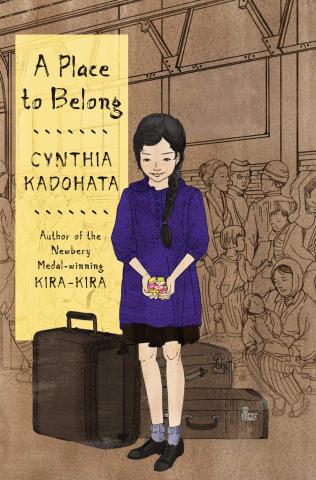
From Newbery Medalist Cynthia Kadohata comes a brilliantly realized young adult novel about a hockey player who must discover who he is without the sport that defines him.
Hockey is Conor’s life. His whole life. He’ll say it himself, he’s a hockey beast. It’s his dad’s whole life too—and Conor is sure that’s why his stepmom, Jenny, left. There are very few things Conor and his dad love more than the game, and one of those things is their Doberman, Sinbad. When Sinbad is diagnosed with cancer, Conor chooses to put his hockey lessons and practices on hold so they can pay for Sinbad’s chemotherapy.
But without hockey to distract him, Conor begins to notice more. Like his dad’s crying bouts, and his friend’s difficult family life. And then Conor notices one more thing: Without hockey, the one thing that makes him feel special, is he really special at all?
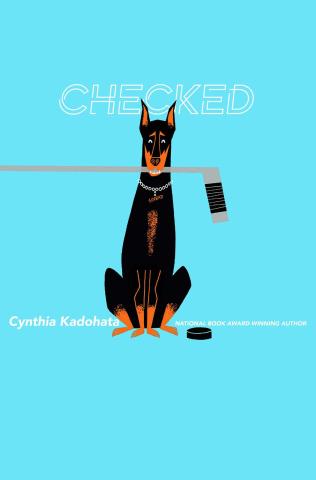
A kid who considers himself an epic fail discovers the transformative power of love when he deals with adoption in this novel from Cynthia Kadohata, winner of the Newbery Medal and the National Book Award. Eleven-year-old Jaden is adopted, and he knows he’s an “epic fail.’ That’s why his family is traveling to Kazakhstan to adopt a new baby—to replace him, he’s sure. And he gets it. He is incapable of stopping his stealing, hoarding, lighting fires, aggressive running, and obsession with electricity. He knows his parents love him, but he feels . . . nothing . . .
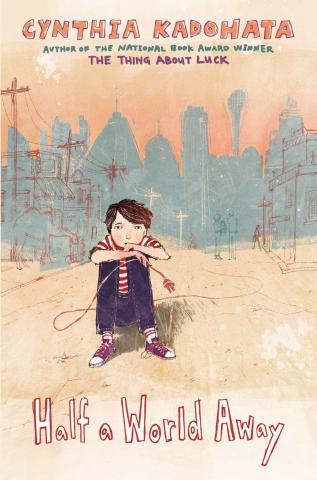
Y'Tin is brave. No one in his village denies that—his mother may wish that he’d spend more time on school work than on elephant training, but still she knows that it takes a great deal of courage and calm to deal with elephants the way that Y'Tin does. He is almost the best trainer in the village—and, at twelve-years old, he’s certainly the youngest. Maybe he’ll even open up his own school some day to teach other Montagnards how to train wild elephants?
That was the plan anyway—back before American troops pulled out of the Vietnam War, back before his village became occupied by Viet Cong forces seeking revenge, back before Y'Tin watched his life change in a million terrible ways. Now, his bravery is truly put to the test: he can stay in his village, held captive by the Viet Cong, or he can risk his life (and save his elephant’s) by fleeing into the jungle.
The Montagnards know their surroundings well. After all, this is why Y'Tin’s village had become loyal US allies during the war, having been tapped by Special Forces for their tracking skills and familiarity with the jungle. But that also means that Y'Tin knows how unsafe it can be—and how much danger he is in if he chooses to head out with no destination in mind. At once heartbreaking and full of hope, Newbery Medal-winning author Cynthia Kadohata’s exploration into the depth of the jungle and the not-so-distant past brings us close to a world few people know about—and none will ever forget. Y'Tin’s story is one of lasting friendships, desperate choices and all that we lose when we are forced to change.
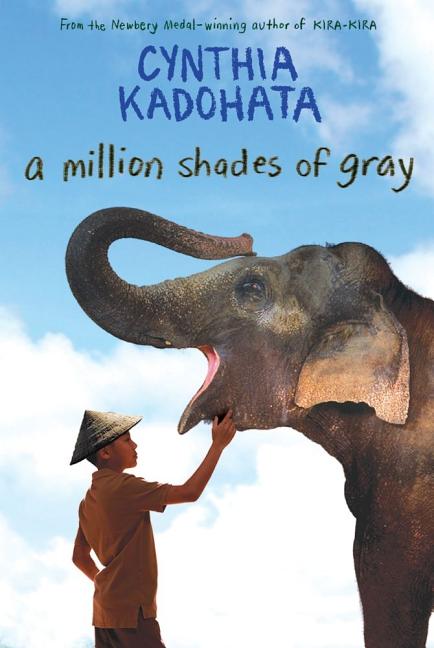
Cynthia Kadohata explores human relationships in a Los Angeles of the future, where rich and poor are deeply polarized and where water, food, and gas, not to mention education, cannot be taken for granted. There is an intimate, understated, even gentle quality to Kadohata's writing—this is not an apocalyptic dystopia—that makes it difficult to shrug off the version of the future embodied in her book.
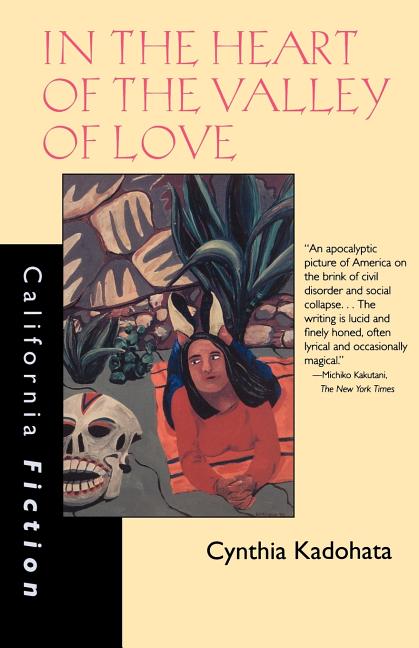
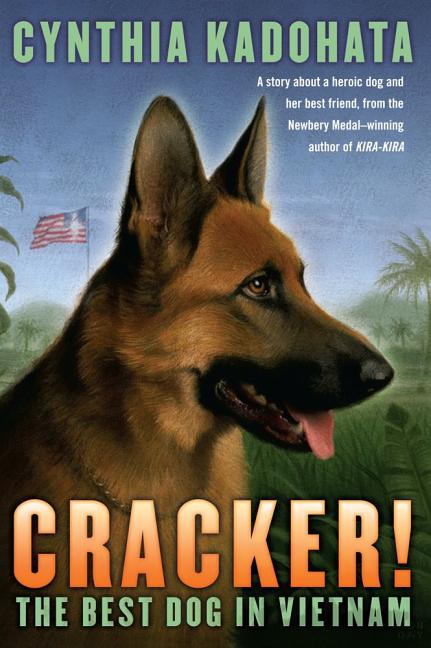
kira-kira (kee ra kee ra): glittering; shining
Glittering. That's how Katie Takeshima's sister, Lynn, makes everything seem. The sky is kira-kira because its color is deep but see-through at the same time. The sea is kira-kira for the same reason. And so are people's eyes. When Katie and her family move from a Japanese community in Iowa to the Deep South of Georgia, it's Lynn who explains to her why people stop on the street to stare. And it's Lynn who, with her special way of viewing the world, teaches Katie to look beyond tomorrow. But when Lynn becomes desperately ill, and the whole family begins to fall apart, it is up to Katie to find a way to remind them all that there is always something glittering—kira-kira—in the future. Winner of the Newbery Medal.
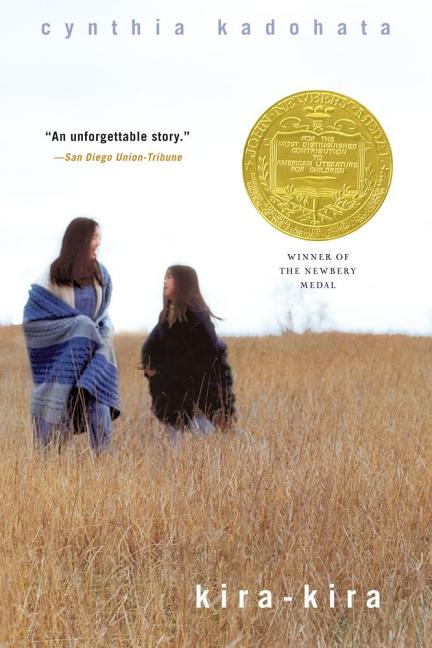
"My mother had four daughters by four different men."
There's only one way Shelby and her sisters can describe their mother: She's a sexpot. Helen Kimura collects men (and loans, spending money, and gifts of all kinds) from all over the country. Sure, she's not your typical role model, but she's also not just a pretty face and nail polish. She is confident and brave; she lives life on her own terms, and her four daughters simply adore her. These girls have been raised outside the traditional boundaries. They know how to take the back exit. They know how to dodge crazed lovers in highway car chases. They do not, however, know how to function without one another.
Then suddenly they must. A late-night phone call unexpectedly shreds the family apart, catapulting the girls across the country to live with their respective fathers. But these strong-willed sisters are, like their mother, determined to live life on their own terms, and what they do to pull their family back together is nothing short of beautiful. At turns wickedly funny and insistently thought-provoking, Outside Beauty showcases Cynthia Kadohata's unerring ability to explore the bonds that bind.
